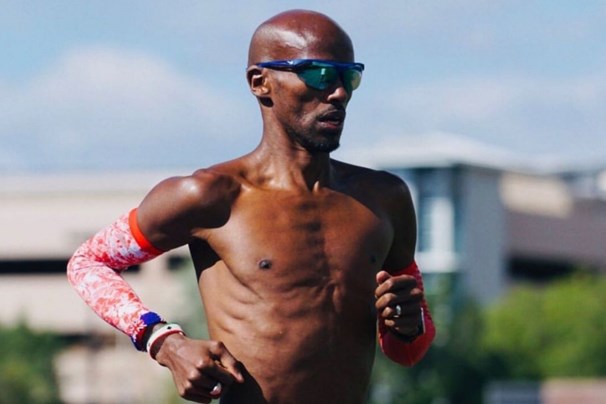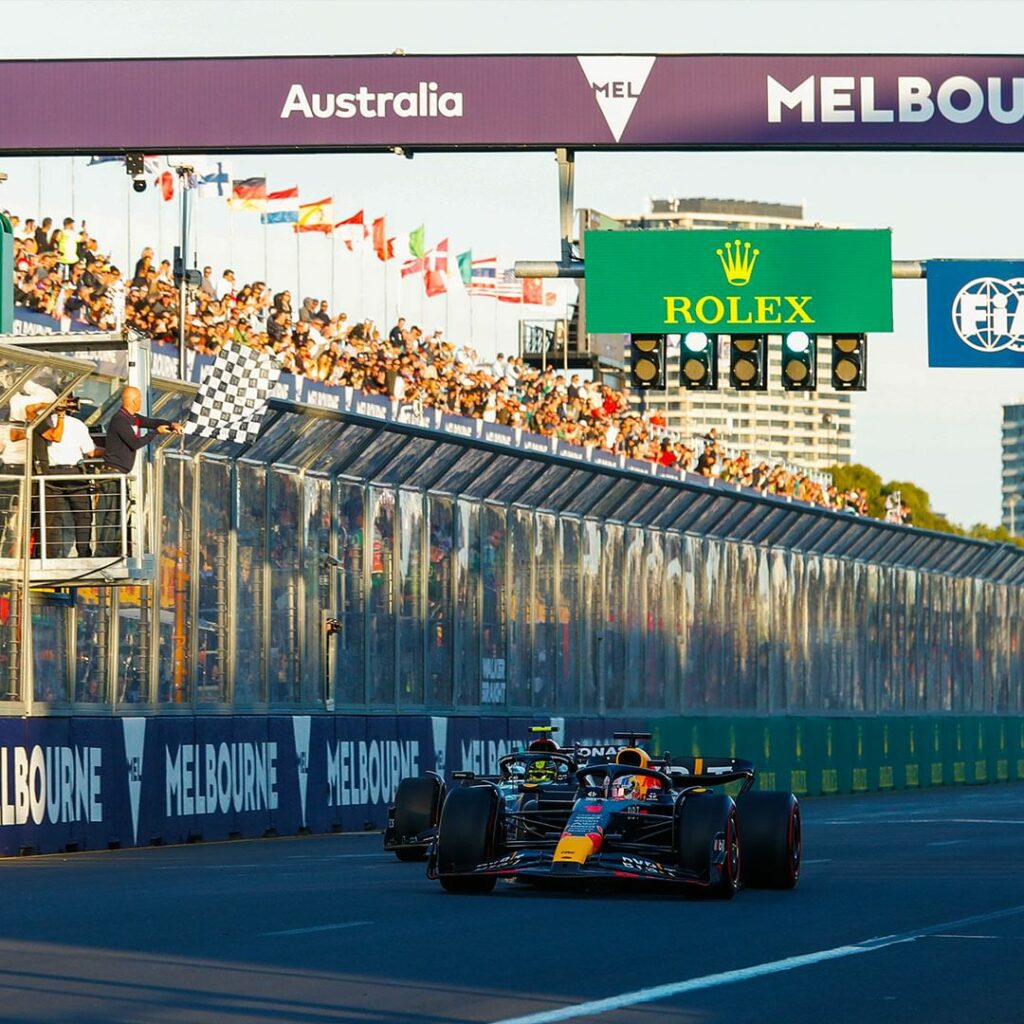It was at the London 2012 Olympics that the name Mo Farah would transcend the athletics track and become one of global stardom. As audiences around the world watched the sport’s top athletes battle it out in the 10,000 metres, all long-limbs and gazelle-like strides, it was Farah who emerged victorious, taking out gold with a time of 27:30.42. His smile of ecstasy was permanently etched on our retinas but for Farah the success didn’t end there. Since then, he’s continued to dominate the sport and now boasts four Olympic gold medals to his name. It goes without saying that for the UK, Sir Mo Farah is the country’s most successful track athlete and at 38-years-old, he’s showing no signs of slowing down.
On June 25, Farah will once again lace up at the British Athletics Championships in the hopes of qualifying for Tokyo 2020. Having fought his way back from injury in 2020, the opportunity is one Farah will relish and he’s confident he can defend his title should he make it to the summer games. With the Games just a few weeks away and Farah’s qualifying event even closer, the star athlete is dialling into his nutrition and ramping up the mileage. In a recent interview with GQ UK, Farah explained just how much work goes into the preparation for an Olympic Games and it’s clear that this is a man who leaves no stone unturned when it comes to athletic performance.
“When I wake up in the morning, I try to go for a 10 to 12-mile run, then a shorter one around five or six miles in the afternoon. Depending on the day, I’ll also go to the gym – I try to go twice or three times a week and that’s all kind of on rotation through the week – and on Sunday a longer 20-mile run,” he told the publication.
“The closer we get to the Olympics, the harder the training becomes and the more specific it gets. At the moment it’s a lot of speed and endurance, trying to push myself to hit my peak. Then I’ll supplement my time running at the gym, working on core stability, front and back squats and things such as bench presses too, but just with the lighter weights – it’s not optimal for me to be heavy and bulky.”
For most, the idea of training at this intensity is something rife with anxiety, but Farah actually enjoys the experience and believes having a goal to work towards allows one to feel a sense of purpose in their day. “I think we all need something in our lives,” he explains. “We all need to find a goal, something to trigger our minds, get out the house and be active. Whether that’s running, cycling or walking the dogs, having a challenge is always a good thing.”
To fuel his staggering amount of training, Farah typically eats porridge or toast in the morning, an hour before his run. Then he has a lunch of chicken, either in a sandwich or caesar salad. In the afternoon he has a slightly bigger meal of salmon or chicken and rice, keeping things healthy by steaming instead of frying wherever possible.
Though he says training at such an intensity can be done on a vegetarian or vegan diet, he suggests, “to do that at this level, you’re asking a lot of questions, because you want to be the best.” Still, even with the mindset of a champion, Farah still has his guilty pleasures: sweets. “I have got such a sweet tooth. For me, it’s very hard to stay away from them. I love Haribo, in particular. Often, after a training session, you’re just craving something sugary and that’s my go-to.”
More important than diet or training though, is recovery for Farah. “Sleep and rest is the most important thing, more than running. If your body’s not ready and hasn’t fully recovered, it’s difficult to ask it to do something because it doesn’t have the energy.” Farah tends to go to bed around 10pm at the latest, and wakes up at 7am. He also schedules in a nap for a couple of hours in the afternoon. But when at training camp, Farah gets to bed at 9pm and is up at 8am, noting that the more sleep he gets serves him extremely well.
And though Farah is a professional athlete, his passion for fitness is one he hopes to instil in his own children as he admits he’s even set his twin daughters, aged nine, and his six-year-old son, the goal of running every day for six months, for a minimum of one mile. “I run with them and sometimes I go on the treadmill with them and watch and support them,” said Farah. “Fatherhood can be difficult to balance with my training, but I haven’t got long left in my career. I’m looking forward to spending more time with my kids and actually being a father.”
















